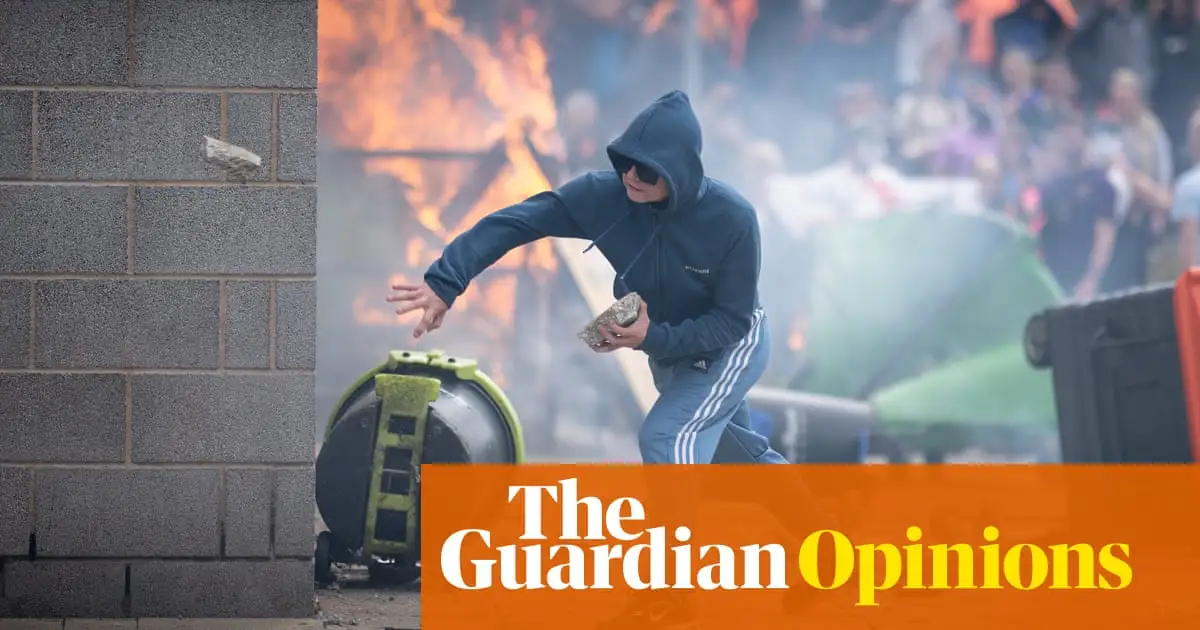A functioning society depends on equality before the law. If crimes are not treated equally and dispassionately by the justice system, we lose trust in democracy and each other. But as sentences begin to be passed on racists who rioted earlier this month, we see once again a blatantly unequal application of the law.
Let’s make a couple of obvious comparisons. One was highlighted this week by the Royal United Services Institute (Rusi). Had those sentenced for their part in the riots this week – who heeded the calls of racist organisers and rampaged through England’s cities – been Muslims inspired by Islamists, they are likely to have been prosecuted as terrorists, potentially facing much longer sentences. Assaulting people in the name of Islam appears to be treated as a far graver crime than assaulting people in the cause of Islamophobia.
How were the attacks on mosques, on a hotel housing asylum seekers and on those who have sought to defend refugees not terrorism? Instead, the riots have been prosecuted as though they were random thuggery, although they emerge from a long and organised campaign of hatred directed towards asylum seekers, immigrants and Muslims. Some of those convicted were reported as having been “caught up” in the disorder: they were portrayed as weak people gone astray. No such understanding is extended to jihadists. As Rusi explains, the UK has a genuine two-tier justice system. It treats some people – white, non-Muslim – as though they act from blind anger, and others – Brown, Muslim – as coordinated terrorists, even when they commit the same crimes.
…
But there’s an even more obvious comparison with the way the racist riots have been handled, and that is with the prosecution of environmental protesters. It is true that only the first clutch of riot cases have so far gone to court, and longer sentences may yet be handed down. But what we have seen is that violent disorder and assaults on the police have so far attracted shorter prison terms than those imposed for peaceful protest. In fact, the longest sentence for a rioter to date (three years) is shorter than the sentences (four and five years) imposed last month on Just Stop Oil campaigners.
As the judge in the Just Stop Oil case pointed out, the protesters caused major disruption by blocking the M25. They inflicted an economic cost of £770,000. No one, including the defendants, expected them to escape punishment. But,whether you agree with Just Stop Oil’s tactics or not, by any standards their nonviolent protest, whose aim was to protect us all from harm, was a far less serious crime than the violence on the streets this month, whose perpetrators deliberately inflicted injury and massive, indiscriminate criminal damage. The riots did not just inconvenience people, they terrorised them. When civil disobedience is punished more severely than racist rioting, something has gone badly wrong.



Anyone with a brain knows this. Which is sad because apparently brains are in short supply these days